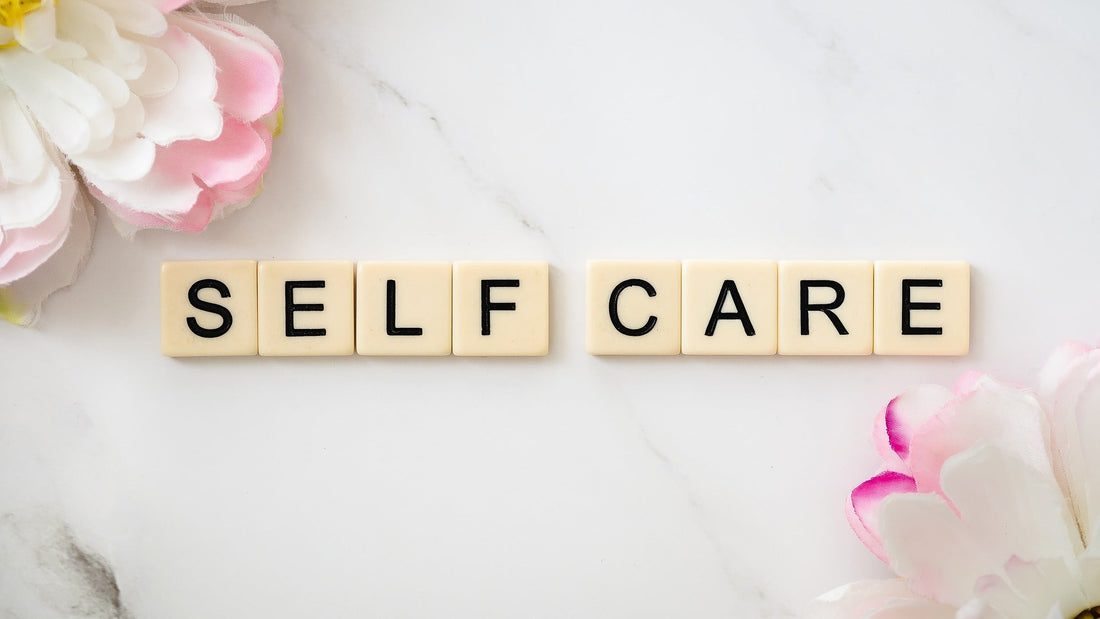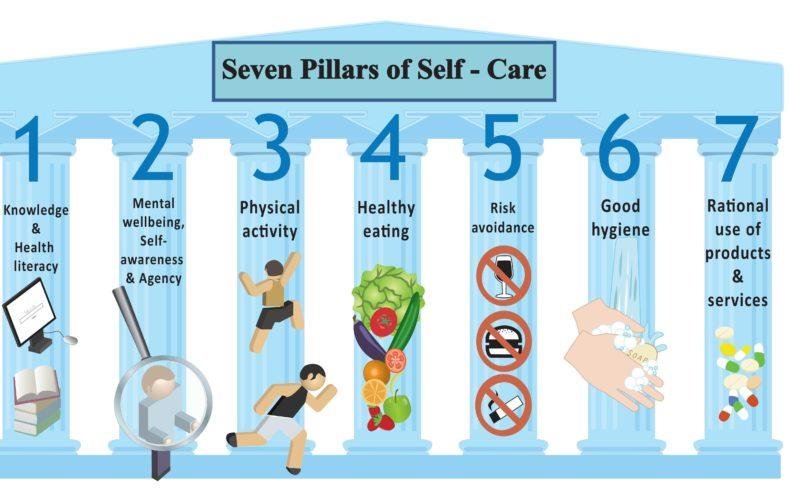
The Seven Pillars of Selfcare and How to Add Selfcare Into Your Life
Share
Self care is on the rise and it’s more than just a passing trend, as more and more people worldwide are adopting lifestyle changes that’ll see their health and wellness be placed as a priority.
Social media platform and image tool Pinterest recently reported an increase in people searching for the ‘slow life’ by a whopping 60%. ‘Digital detox challenge’ was also up by 80%, with other search terms like ‘bodycare’ and ‘body skincare routine’ also trending.
To improve mental and physical health, while going through the motions of the sometimes chaotic turns and twists of daily life, self care is essential.
According to the International Self-Care Foundation (ISF), there are 7 pillars of self care. These are said to lead to improved health, bring significant savings in healthcare costs, and enhance productivity.
These categories are useful for measuring your self care activities against, as a mixture of all seven can lead to a healthier lifestyle. Let’s explore the 7 pillars of self care.

1. Knowledge and Health Literacy
First up is ‘Knowledge and Health Literacy’ and this acts as a key building block to achieving full self care potential.
The World Health Organization describes health literacy as having ‘the cognitive and social skills which determine the motivation and ability of individuals to gain access to, understand, and use information in ways to promote and maintain good health.’
This is of utmost importance as the rise of social media has led to a whole lot of misinformed information floating around. When someone is educated on health, they’re able to decipher between what’s right and wrong for their body.
Currently, only 12% of Americans are said to have proficient health literacy skills.
To improve health literacy, consider the following:
- Asking questions and ask your doctor to clarify when they’re not being 100% clear
- Repeat what the doctor tells you in your own words to confirm you’ve understood correctly
- Ask if you can bring a loved one to any appointments
- Bring a translator if your first language is different from your healthcare provider
- Don’t believe everything you read on the internet as not all are reviewed by experts or backed by scientific studies
2. Mental Wellbeing, Self-Awareness, and Agency
Improving mental wellbeing is paramount in the modern world, especially as a mental health crisis continues to loom over the US and major countries worldwide.
By focusing on your mental wellbeing, this will result in you realizing your own potential, being able to cope with daily stressors, contributing where necessary to your community, and having the ability to work productively.
Having self-awareness and agency are the starting points when looking to prioritize mental wellbeing. This refers to having a sound understanding of your personal health situation and the motivation to change.
Exercise has long been hailed as a strategy for those looking to improve mental wellbeing due to its endorphin-boosting benefits. So take a look at how often you’re getting your body moving and if this can be improved upon.
For this step in the 7 pillars of self care, assess the below:
- Your diet
- Current level of physical activity
- Your risk profile for health conditions (consider your family’s medical history, if possible)
- Keep a note of what vaccinations you have
3. Physical Selfcare
This is all about staying active! Physical activity is essential for good health, with regular exercise contributing to reducing the risk of many diseases.
Getting out and about, especially in fresh air, is a surefire way to get the blood pumping and endorphins running. Not only will this help with your physical health, but it’ll improve your mood, sleep, and mental health too!
Exercise in almost any form can act as a stress reliever too, with all the feel-good endorphins buzzing around your body when you get moving.
As part of the World Health Organization’s Global Recommendations on Physical Activity for Health, it’s recommended that adults do at least 150 minutes of moderate-intensity aerobic physical activity each week - or at least 75 minutes of vigorous-intensity aerobic physical activity throughout the week.
This doesn’t have to mean slogging it out in the gym though, especially if you’re not a fan. You should enjoy this part, so think about sports which you’d look forward to partaking in each week. This could include yoga, swimming, tennis, badminton, football, or cheerleading. Or even take to catching up with friends while hiking or walking around the neighborhood.
4. Healthy Eating
Step 4 of the 7 pillars of self care is one of the most well-known - healthy eating.
Having a balanced diet has repeatedly been shown to have preventative benefits, reducing the risk of many diseases.
Vegetables, for example, contain important sources of vitamins, antioxidants, and minerals that our body craves.
To succeed in this, remember that a healthy diet comprises eating a combination of these foods:
- Staples like cereals (wheat, barley, rye, maize, or rice) or starchy tubers or roots (potato, yam, etc)
- Legumes (lentils and beans)
- Fruit and vegetables
- Foods from animal sources (meat, fish, eggs, and milk)
Other steps to take are:
- Limiting the intake of simple sugars and salt
- Up the consumption of fruits and vegetables, legumes, whole grains, and nuts
5. Risk Avoidance
Once you’ve got the prior four steps into place, it’s now time to think about how you can prevent future issues from occurring.
This could involve lowering your tobacco and alcohol intake as avoiding high-risk behaviors like these has been shown to significantly reduce preventable mortality and reduce all-cause mortality.
In fact, WHO considers tobacco usage to be ‘one of the biggest public health threats the world has ever faced.’
To fulfill the risk avoidance step, mitigate health conditions through…
- Making sure you are vaccinated
- Drinking in moderation and reducing your intake
- Not smoking or quitting if you’re already a smoker
- Protect yourself from the sun
- Wear a seat belt whenever you’re in a vehicle
- Wear a helmet if biking
If you’re unsure about your current health levels, or have any concerns, consider completing medical tests with your healthcare provider to put your mind at ease.
6. Good Hygiene
Having good hygiene is important for preserving health and warding off the spreading of communicable diseases. It’ll protect the people around you too.
At a very basic level, handwashing is an easy ‘vaccine’ that is a good stepping stone to introducing proper hygiene. In the past, handwashing promotions have actually led:
- To a reduction of diarrheal illness by 31%
- A 21% reduction in respiratory infections
- Reduction of diarrheal illness in immunocompromised individuals by 58%
Other examples of hygiene practices include regular oral healthcare, proper food handling, and covering the food or mouth when coughing or sneezing.
7. Rational Use of Products and Services
And finally, the 7 pillars of self care ends with the ‘rational use of products and services.’ This is the responsible use of health products as part of self-care, as well as medicines and services too.
Products should be safe, of high quality, and be able to be self-managed. Having the information and know-how can help to empower and improve health when a situation happens.
Some examples of rational medicine use include:
- Reading any directions on the label or leaflet fully, paying close attention to any side effects
- Ask your doctor or pharmacist to explain anything you’re not sure about
- Consult your healthcare provider when an issue occurs or if a serious side effect takes place
- Follow instructions carefully
For more articles on wellness, read:
